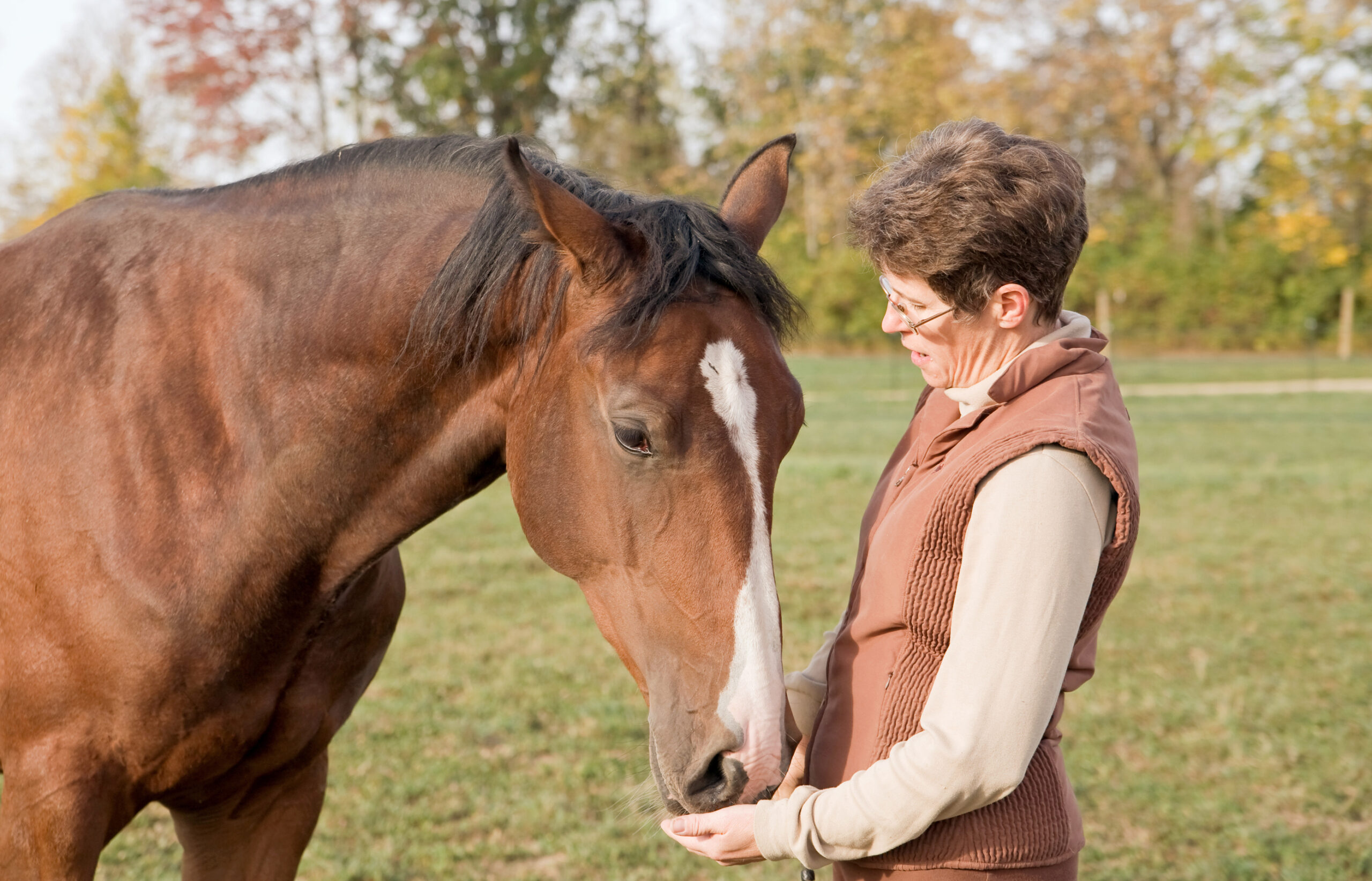The Bond Between Horses and Humans

Horses are by nature very different from other animals we meet in our daily life, and their behavior is closer to human than one would think. Horses are social creatures and seek attachment relationships – just like us. They live in herds and establish hierarchical, family-like structures.
Horses are prey animals and therefore constantly scanning the environment for subtle changes to maintain their safety. Humans do the same!
While human beings are natural predators for the horse, it is incredibly unique how these two creatures can learn to bond, to follow or lead one another, and to establish a partnership based on trust. To experience such thing is rewarding and educational at the same time.
Brain surgeon and horse trainer Dr. Allan Hamilton analyzes the horse-human bond from the neuroscience side:
“The horse learned to read the environment and to sense it at a visceral, intuitive level. Naturally, the more tuned in to his environment a horse was, the more likely he was to survive and get his genes into the next generation. Over millions of years, nature selected for an exquisite prey animal, with senses tingling and the ability to surge to dizzying acceleration in fractions of a second. As a neurosurgeon and a horse trainer, I am always impressed by how the non-verbal nature of horses forces us to quiet our inner voice. We cannot use language for encouragement like we might for a dog. We must build up the horse with our intention. The horse seems to simply take a short cut around our language, our inner voice, which is constantly distracting us from connecting with the world around us.
When free of language, we can relate directly, viscerally with the horse. We do not need to understand how the horse knows what we want, we need to feel it. Horses teach us that what we access by feeling is just as valid as what we know by reasoning.”
Horses even have a place in spirituality. In shamanic traditions the horse totem is a kind hearted and compassionate spirit. It stands for freedom, intelligence and grace.
Dr. Allan Hamilton has to say the following about horses and spirituality:
“Consider this: when we wish, as human beings, to reach a state of spiritual connection, what do we do? In a place of worship, we might close our eyes and chant a prayer over and over. It might be a mantra that keeps us focused on the repetition of the sounds as a way of pulling our minds away from our inner voice. Or it could be beatinq on a drum, handling beads, turning a prayer wheel. Or we might just meditate, focusing our attention on a flame or closing our eyes and concentrating on our breathing. Why go to all this trouble? Because access to a spiritually connected state of mind requires us to take the left hemisphere, with its sense of isolated self and ego, “off line.” The trick to developing a sense of spiritual connection is to lose the sense of self.
And that is precisely what horses are best at doing. So the next time you go out to your barn or take your horse out of his stall, remember: this is a master species in its own right. It calls on us to partner with him at an emotional and intuitive level–beyond the reach of our ego and the lies we tell ourselves to feed it. He seeks to guide us to join him in his world, beyond language, and beyond the constraints of our own species’ evolution.”
Dr. Allan Hamilton, Zen Mind – Zen Horse, The Science and Spirituality of Working with Horses (Storey Publishing)
